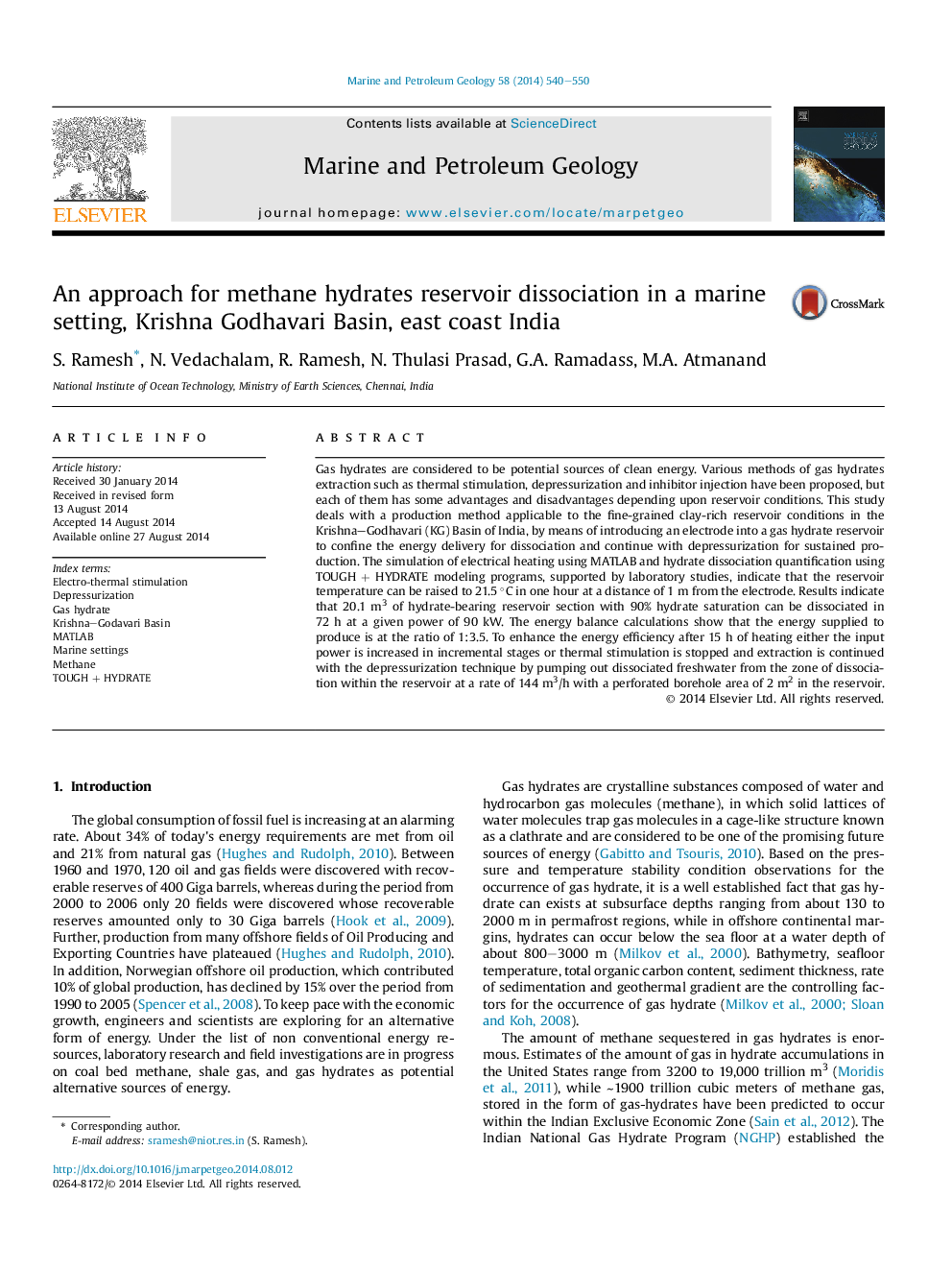| Article ID | Journal | Published Year | Pages | File Type |
|---|---|---|---|---|
| 6435262 | Marine and Petroleum Geology | 2014 | 11 Pages |
â¢Methane extraction methodology for marine gas hydrate settings of KG Basin in India.â¢Application of in-situ electro thermal stimulation for methane gas production.â¢Results from Modeling and Simulation with MATLAB and TOUGH + HYDRATE software.â¢Found electrical heat energy supplied to methane gas produced is in ratio of 1:3.5.â¢Approach on design and challenges in realizing field scale system.
Gas hydrates are considered to be potential sources of clean energy. Various methods of gas hydrates extraction such as thermal stimulation, depressurization and inhibitor injection have been proposed, but each of them has some advantages and disadvantages depending upon reservoir conditions. This study deals with a production method applicable to the fine-grained clay-rich reservoir conditions in the Krishna-Godhavari (KG) Basin of India, by means of introducing an electrode into a gas hydrate reservoir to confine the energy delivery for dissociation and continue with depressurization for sustained production. The simulation of electrical heating using MATLAB and hydrate dissociation quantification using TOUGH + HYDRATE modeling programs, supported by laboratory studies, indicate that the reservoir temperature can be raised to 21.5 °C in one hour at a distance of 1 m from the electrode. Results indicate that 20.1 m3 of hydrate-bearing reservoir section with 90% hydrate saturation can be dissociated in 72 h at a given power of 90 kW. The energy balance calculations show that the energy supplied to produce is at the ratio of 1:3.5. To enhance the energy efficiency after 15 h of heating either the input power is increased in incremental stages or thermal stimulation is stopped and extraction is continued with the depressurization technique by pumping out dissociated freshwater from the zone of dissociation within the reservoir at a rate of 144 m3/h with a perforated borehole area of 2 m2 in the reservoir.
